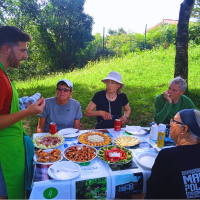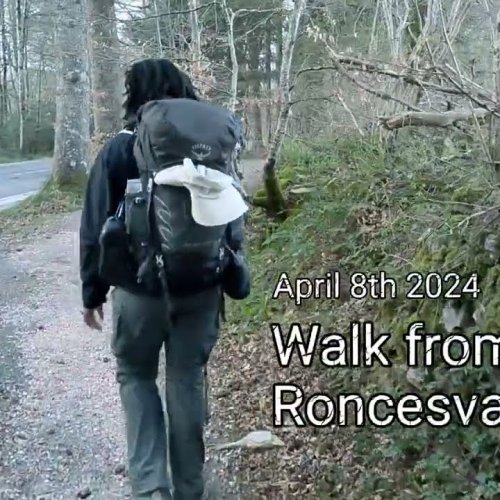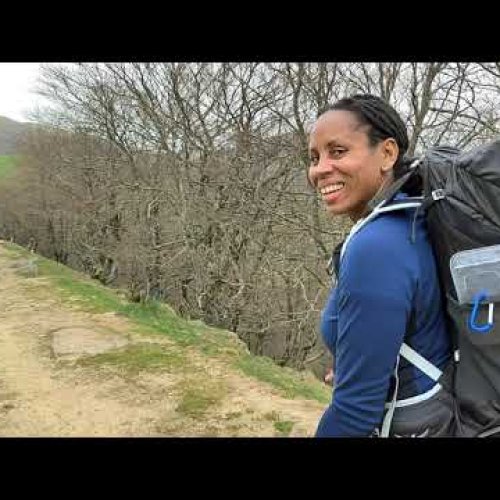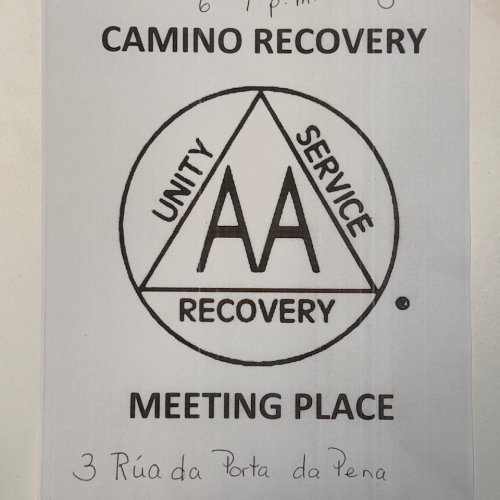Don't worry too much about the differences! You'll likely be understood and you'll pick up the differences in vocabulary once on the route. Be aware we don't use words like cuate, pinche, güey... We don't use parquear but aparcar, chango but mono... Well, the list would be too long. As I said above, don't worry too much about it. Just pay attention to all the words you hear that are different to the ones you hear in Mexico and figure out their meaning by the context. That's what locals will make when you use a word that isn't familiar for them. See below for more tips.
sandwiches are bocadillos not tortas
In Spain, a sandwich is a sándwich (
http://es.wikipedia.org/wiki/Sándwich) and a bocadillo is a bocadillo (
http://es.wikipedia.org/wiki/Bocadillo_(pan)). BTW, colloquial for bocadillo is bocata.
Spain has 4 official languages and several official dialects.
Spain has one official language in all the country (Spanish) and several other languages that are co-official (alongside with Spanish) in the territories where they are spoken.
Your Mexican Spanish is actually called Castellano.
The language can be called either español or castellano although español is preferred by the
Asociación de Academias de la Lengua Española.
Euskara is an official language and is spoken in Navarra and Pais Vasco
Euskara is a co-official language in the Basque Country and part of Navarre.
Galician is an official language and is spoken in Galicia.
Galician is a co-official language in Galicia. Although it doesn't have co-official status, it's a
protected language in the areas of Castile and Leon where it's usually spoken (i.e.: part of the Bierzo and some towns in Sanabria).
I wondered how widespread the use of the vosotros form was.
In the areas of Spain crossed by the Camino Francés, vosotros/as is commonly used except when using ustedes in formal speech (see below).
The other question is tu vs. Usted.
That's someway a personal one because different people have different approaches. For example, some older people use usted when talking with religious members (nuns, monks, priests...) while barely any youth would even think of using usted with that sort of people. Tu is widely used nowadays specially among young people. Older people use usted more than young people but maybe not so much as they used to use it. I would say: use usted with authorities (police, judge...), with older people and when someone uses usted with you. And in the case of what you may think as older people, don't be too surprised if they request you to use tu with them by whatever reason (e.g.: I'm not that old...).
And people will look at you funny if you ask for jugo de naranja instead of zumo de naranja.
Yes, that's a good one to have in mind. However, although we don't use jugo but zumo, I think everyone would understand jugo.
And ask dónde esta los servicios, rather than donde esta el baño
Servicio or baño or aseo. All of them should be fine. It seems sometimes people put a strange (or funny or...) face when using a word that isn't the one they use but that doesn't mean you aren't using a word that may have been used by a Spanish.
My only surprise was that in Spain, one does not "tomar" a drink."Beber" is always used.
Tomar una caña, tomar un vino... We do use tomar. I'm not sure how could you get the idea that we don't use it.
A couple I remember: Carro vs coche, mofeta vs zorilla
You mixed the order. Mofeta is used in Spain while Zorrilla is used in some Spanish speaking American countries. OTOH, we use coche in Spain while carro is used in some Spanish speaking American countries.






















